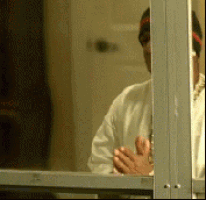
Good Morning POU!

This week in the afternoon threads we will pay tribute to the great session musicians of the Motown Sound. They deserve all the accolades (especially since Berry Gordy did them dirty) – for their amazing musical contributions to some CLASSICS! But first, this morning we learn some history behind these legendary musicians.
The Funk Brothers were a group of Detroit-based session musicians who performed the backing to most Motown recordings from 1959 until the company moved to Los Angeles in 1972.
They are considered one of the most successful groups of studio musicians in music history.
There have been many articles written that identify members of the Funk Brothers, some of which claim that virtually every musician who ever played on a Motown track was a “Funk Brother”. There are 13 Funk Brothers identified in the film Standing in the Shadows of Motown. The same 13 members were identified by both NARAS for the Grammy Lifetime Achievement Award and were recognized with a star on the Hollywood Walk of Fame. The role of the Funk Brothers is described in Paul Justman’s 2002 documentaryy Standing in the Shadows of Motown, based on Allan Slutsky‘s book of the same name. The opening titles claim that the Funk Brothers have “played on more number-one hits than the Beatles, Elvis Presley, the Rolling Stones and the Beach Boys combined.”
Stevie Wonder – Fingertips Part II Live (Lawd Stevie is just on another planet with the talent)
Unlike their Stax Records backing-band contemporaries Booker T. and the M.G.’s in Memphis, until the release of the Standing in the Shadows of Motown documentary, the members of the Funk Brothers were not widely known. Studio musicians were not credited by Motown until Marvin Gaye‘s What’s Going On in 1971, although Motown released a handful of singles and LPs by Earl Van Dyke. The Funk Brothers shared billing with Van Dyke on some recordings, although they were billed as “Earl Van Dyke & the Soul Brothers”, since Motown CEO Berry Gordy, Jr. disliked the word “funk“.
Jackie Wilson – Your Love Keeps Lifting Me (Higher and Higher)
The Funk Brothers often moonlighted for other labels, recording in Detroit and elsewhere, in bids to augment their Motown salaries. It became a worst-kept secret that Jackie Wilson‘s 1967 hit “(Your Love Keeps Lifting Me) Higher and Higher” had a Motown influence. According to Carl Davis, the producer of the song, the Funk Brothers “used to come over on the weekends from Detroit. They’d load up in the van and come over to Chicago, and I would pay ’em double scale, and I’d pay ’em in cash.”
Various Funk Brothers also appeared on such non-Motown hits as The San Remo Golden Strings “Hungry For Love”, “Cool Jerk” (the Capitols), “Agent Double-O Soul” (Edwin Starr, before that singer joined Motown itself), “(I Just Wanna) Testify” by the Parliaments, “Band Of Gold” (Freda Payne), “Give Me Just A Little More Time” (Chairmen of the Board), and blues giant John Lee Hooker‘s “Boom Boom“.
After he found out about the Edwin Starr session, Gordy fined members of the Funk Brothers band for moonlighting for another label; Eddie Wingate, owner of the Ric-Tic and Golden World labels, which released Starr’s “Agent Double-O Soul”, subsequently attended that year’s Motown staff Christmas party and personally gave each of the fined session players double the amount of the fine in cash, on the spot. Gordy eventually bought out Wingate’s label and his entire artist roster.
Motown historians have noted that the Funk Brothers—some of whom had begun their careers as jazzmen and missed that kind of informality—itched to be able to record on their own, but Gordy limited them formally to cutting sides under the name Earl Van Dyke and the Soul Brothers—and mostly limited them to recording new versions (with the familiar arrangements, however) of the Motown repertoire, with Van Dyke, the featured musician, playing electric organ.
During the mid- to late-1960s, one-fifth of Motown records began utilizing session musicians based in Los Angeles, usually covers and tributes of mainstream pop songs and showtunes. By 1970, an increasing number of Motown sessions were in Los Angeles instead of Detroit, notably all the Jackson 5‘s hit recordings. Nevertheless, Motown producers such as Norman Whitfield, Frank Wilson, Marvin Gaye, and Smokey Robinson steadfastly continued to record in Detroit.
The Four Tops – Baby I Need Your Lovin
The Funk Brothers were dismissed in 1972, when Berry Gordy moved the entire Motown label to Los Angeles—a development some of the musicians discovered only from a notice on the studio door. A few members, including Jamerson, followed to the West Coast, but found the environment uncomfortable. For many of the L.A. recordings, members of the Wrecking Crew—the prominent group of session musicians that included drummer Earl Palmer, bassist Carol Kaye, guitarist Tommy Tedesco, and keyboardist Larry Knechtel—joined the team at Motown.
